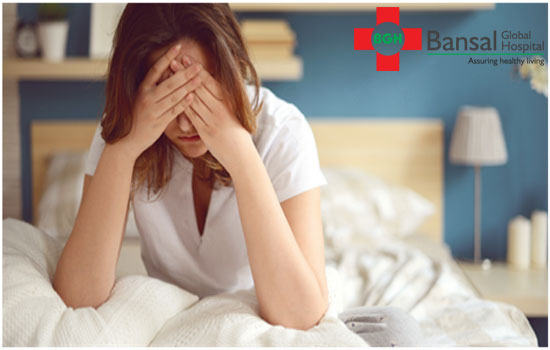Postpartum depression
The birth of a baby is one of the most magical moments in the parents’ life. However, with the positivity and infinite possibilities that come with a new life, comes a range of emotions that may result in depression.
Most new mothers experience ‘Baby blues’ after giving birth while some experience a severe form of depression known as Postpartum Depression.
Baby blues symptoms may include mood swings, crying, anxiety, and difficulty sleeping which can stay for a week or two. However, Postpartum depression is a severe form of mood disorder associated with the birth of a child and it lasts longer and affects both parents. It is associated with emotional, physical and social changes that occur when having a baby.
What are the symptoms of Postpartum depression?
Postpartum depression symptoms may include extreme sadness, anxiety, fatigue, crying episodes, irritability, difficulty sleeping, change in appetite, and difficulty bonding with the baby. Its symptoms may develop within a few days of delivery- during delivery and may last for a year after the birth of the baby.
It is a serious disorder and shouldn’t be taken lightly. If you experience such signs, consult your doctor immediately. With proper care and treatment, it can be treated.
What causes Postpartum depression?
While the actual cause of Postpartum depression is still unknown, there might be some factors that trigger it into force. Doctors explain that it can cause due to physical changes and emotional stressors.
When you are pregnant the level of estrogen and progesterone are higher than usual. Within the hours of giving birth, these hormones drop to their former state and that sudden change may lead to depression. You are more likely to develop Postpartum depression if someone in your family has it.
Some of the emotional factors that can cause this condition:
- recent divorce or death of a loved one
- you or your child has serious health problems
- social isolation
- financial burdens
- lack of support
Some of the physical aspects that can cause after-birth depression:
- low thyroid hormone levels
- sleep deprivation
- inadequate diet
- underlying medical conditions
- drug and alcohol misuse
Postpartum depression in new fathers
New-borns can bring lots of changes in the lives of their parents. It is understandable if they are having a hard time managing everything else with their bundle of joy. While 1 in 9 new mothers has it, 1 out of 10 fathers suffer from it during the year the baby is born
New fathers may feel sad, fatigued, overwhelmed, experience anxiety, change in eating patterns, same as their partners with postpartum depression or paternal postpartum depression. It can have some damaging effects on their relationships and child development.
Fathers who are young, have a history of depression are more likely to suffer from it.
If you are a new father and experiencing such symptoms it is possible that your partner is experiencing them too.
Consult your doctor and get you and your partner the required treatment.
What are the treatments available for Postpartum depression?
The treatment for Postpartum depression depends on symptoms and their severity. Thus, the approach is different for everybody. There are two main treatments for it: Therapy and Anti-depressants.
It is common for new parents. However, it is important that you seek professional help. If you are pregnant or considering family planning make sure you are aware and educated about the changes and challenges that lie ahead of you and your partner.
Here at Bansal Global Hospital, we have a specialized team of doctors to help with your medical concerns in a sensitive setting.
Consult our team of health care experts at the Bansal Global Hospital. Fix your appointment today and contact us at +919911062832.


 MAKE AN APPOINTMENT
MAKE AN APPOINTMENT